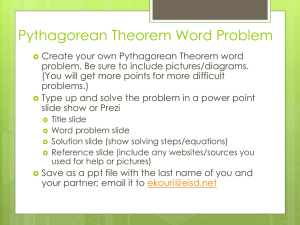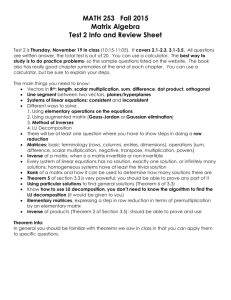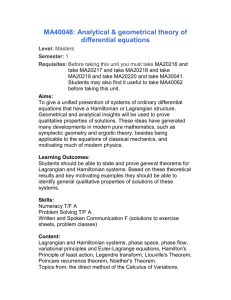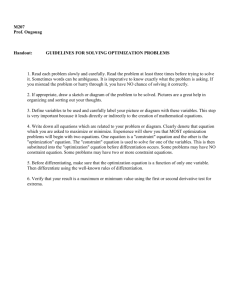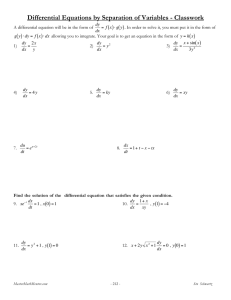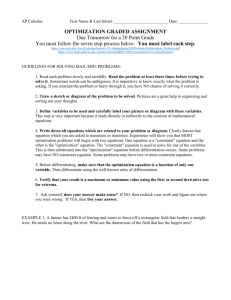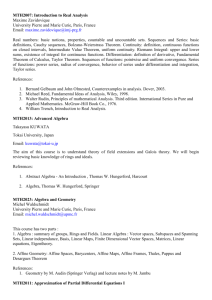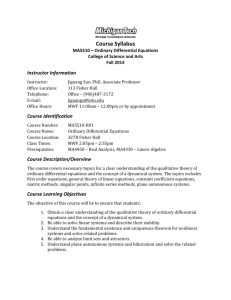Syllabus
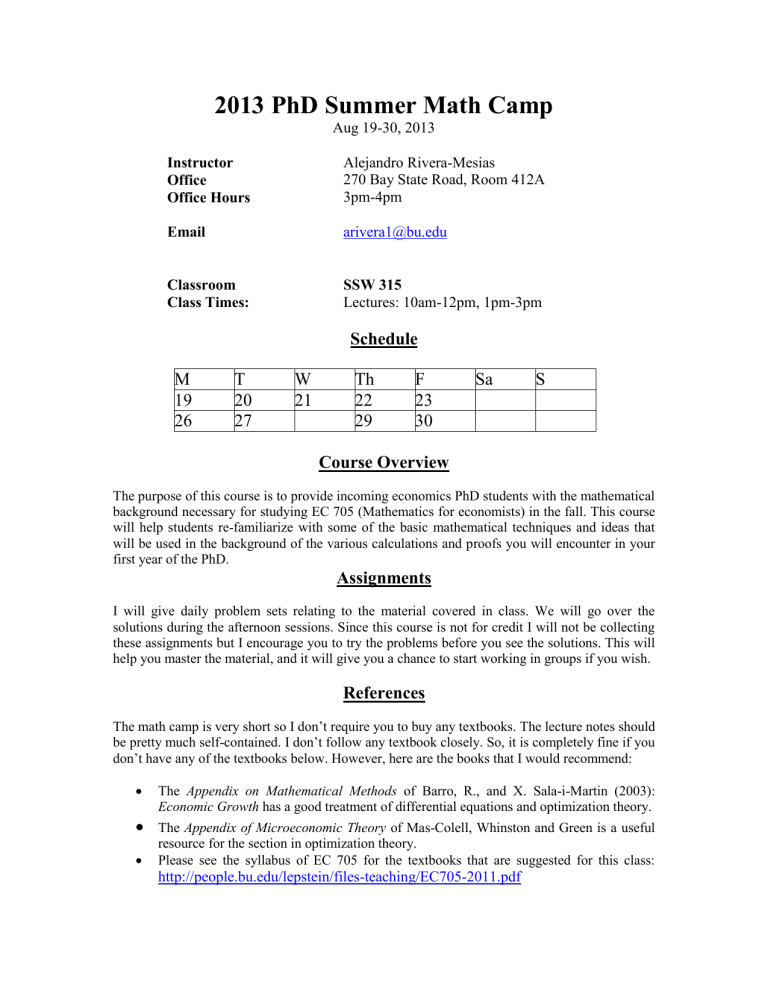
2013 PhD Summer Math Camp
Aug 19-30, 2013
Instructor
Office
Office Hours
Classroom
Class Times:
Alejandro Rivera-Mesias
270 Bay State Road, Room 412A
3pm-4pm arivera1@bu.edu
SSW 315
Lectures: 10am-12pm, 1pm-3pm
Schedule
M
19
T
20
W
21
Th
22
F
23
Sa S
26 27 29 30
Course Overview
The purpose of this course is to provide incoming economics PhD students with the mathematical background necessary for studying EC 705 (Mathematics for economists) in the fall. This course will help students re-familiarize with some of the basic mathematical techniques and ideas that will be used in the background of the various calculations and proofs you will encounter in your first year of the PhD.
Assignments
I will give daily problem sets relating to the material covered in class. We will go over the solutions during the afternoon sessions. Since this course is not for credit I will not be collecting these assignments but I encourage you to try the problems before you see the solutions. This will help you master the material, and it will give you a chance to start working in groups if you wish.
References
The math camp is very short so I don’t require you to buy any textbooks. The lecture notes should be pretty much self-contained. I don’t follow any textbook closely. So, it is completely fine if you don’t have any of the textbooks below. However, here are the books that I would recommend:
The Appendix on Mathematical Methods of Barro, R., and X. Sala-i-Martin (2003):
Economic Growth has a good treatment of differential equations and optimization theory.
The Appendix of Microeconomic Theory of Mas-Colell, Whinston and Green is a useful resource for the section in optimization theory.
Please see the syllabus of EC 705 for the textbooks that are suggested for this class: http://people.bu.edu/lepstein/files-teaching/EC705-2011.pdf
Course Outline
I. Preliminaries
• Logical statements and proof techniques
• Elementary set theory
• Cartesian products and relations: sup/inf vs max/min, distance in R n
• Open sets, and closed sets in R n
• Convergence and compactness in R n
• Functions
• Continuity of functions
II. Linear Algebra
• Vector spaces and subspaces; Linear independence and basis
• Linear functions and matrix representations
• Kernel and range
• Fundamental Theorem of Linear Algebra
• Inverse and Determinant
• Positive and negative definiteness, and semi-definiteness
III. Differentiation
• Definition and rules
• Mean Value Theorems, L’Hospital’s Rule, and Taylor’s Theorem
• Multivariable functions: Gradient and Hessian
• Vector-valued functions: Jacobian and derivatives of matrix functions
• The Implicit Function Theorem
• Homogeneous functions and Euler’s Formula
• Concave (convex) and quasi-concave (quasi-convex) functions
IV. Integration (Riemann Integral)
• Definition and basic properties
• Change of variables and integration by parts
• The Fundamental Theorem of Calculus
• Differentiation with respect to the variable of integration
V. Difference and Differential Equations
• Eigenvalues and eigenvectors
• Systems of linear difference equations
• First-order linear ordinary differential equations
• Systems of linear ordinary differential equations
VI. Static Optimization
• Unconstrained maximization
• Constrained maximization with equality constraints
• Shadow price and Envelope theorem
• Constrained maximization with inequality constraints
VII. Dynamic Optimization
• Discrete time: the Maximum Principle
• The Ramsey model and the transition dynamics
• From discrete time to continuous time: an analogue


